The last few posts I've written have looked at fairly specific issues, albeit taking or starting to take a bit of a deeper dive at times. They've been written in a way that involves a fair amount of referencing of other people's writing in order to illustrate a point I'm trying to make. Over the last few week, for a variety of reasons, I've been reading and reflecting on a number of posts on Substack, and a few on other platforms. All of them, in one way or another, are striving to understand why we are where we are in a world that's not just becoming more dystopian but also, just plain weirder and more bizarre, day by day. I've also been reflecting on my experiences of the last few years, trying to make sense of them now, in what can best be referred to as the 'new normal'.
A lot depends on what you mean by 'normal' though, doesn't it? Here's a definition for you: "conforming to a type, standard, or regular pattern : characterized by that which is considered usual, typical, or routine." This is taken from the Merriam-Webster Dictionary.
The most noticeable thing about the 'new normal' we're going through is that there's nothing remotely usual, typical or routine about it. If anything, the period we're in can best be characterised as random, unpredictable, weird, bizarre, and a host of similar descriptive words!
A fair few people would say that it was ever thus and yes, the world has never been entirely predictable, things have never really been settled and there has always been a state of flux and also, there has always been conflict.
However, as the title of this piece suggests, despite the world always being in a state of change and a certain degree of chaos, there's something quantitatively and qualitatively different about the period we're in now. Despite daily life having a feel of normality after the Covid 'crisis' lockdowns of 2020/21, it's a very superficial feeling and you don't have to scratch too far below the surface to realise that a lot of things just feel 'off'. Some of that is just a vague feeling of unease, however, there's an unspoken feeling that some form of societal breakdown is lurking beneath the surface.
During the Covid 'crisis' lockdowns, when the schools were shut and kids had to 'learn' from home, I remember frequently making the point that those from troubled backgrounds, who were already edging towards marginalisation and exclusion, would end up falling through the safety net. Well, here we are: Thousands of 'ghost children' who gave up on school in Covid to 'cause huge crimewave' 27.7.23. There's a sense of brittleness about certain cohorts of kids who fell through the safety net that was supposed to catch them and who feel they owe nothing to a society that let them fall. That's already manifesting itself in some pretty nihilistic behaviour which does not bode well for the future.
Okay, I lived through the 1970s and that was grim. There was plenty of nihilistic behaviour which in part was a reaction to the optimism of the 1960s turning out to be an illusion as the gritty reality of the 1970s impacted our lives. From football hooliganism to the Yorkshire Ripper, a raw nihilism was there for all to see. I'm not going to say that compared to now, the 1970s were a paradise of harmony because they weren't. From A Clockwork Orange to Straw Dogs, movie going was a pretty downbeat experience as the taboos on depicting the depth of human depravity were lifted. What the 1970s were was an acceleration of the process that has in part led us to where we are now.
Most of us who teenagers in the late 1960s into the early to mid 1970s had parents who fought in or were impacted by WW2. War is traumatic and it leaves lifelong scars, not just physical but mental. Some of our parents, just bottled up their anger and trauma at what they'd been through and did their level best to lead quiet, respectable lives, even while putting up with the long term physical and mental injuries they had sustained. Other's couldn't do that and lived life on a pretty short fuse which meant losing their rag with each other in front of their kids and normalising going into a rage to express their frustrations. That was pretty much my experience of growing up and one which I'll freely admit has left it's scars on me.
The more I think about what my parents told me and what I've read about WW2 and it's aftermath, the more I realise that a fair few of my parents generation went off the leash during and after the war. On the so called home front in the blackouts, there was looting, there was rape. The myth of national unity was just that, a myth that people of my generation had rammed down our throats at school and we only started to question decades later on. Certainly with my parents, there was quite a lot of hedonistic behaviour, a fair bit of it involving alcohol, before they settled down. Part of the reason they had a go at my generation was to deflect attention and questioning away from their conduct.
But, it wasn't my parents generation that was the one that started the process of self doubt and the erosion of belief in eternal values. That happened with my grandparents generation and those older than them who went through WW1. Before the vicious inter-imperialist conflict of WW1, it was the bombast of an empire that the sun would never set on. Afterwards, it was the start of a lot of questioning of many aspects of life that people had previously taken for granted. It was certainly the start of the process of breakdown.
Albeit one that did produce some profound music, art and writing. If you listen to a pre WW1 work of the English composer Elgar, and a post WW1 one, you would struggle to believe the music was written by the same composer, such was the impact of the trauma of the conflict.
The process leading us to where we are today is not a new one. It's a process that has been going on for over a century now. It's a process that has probably happened with every civilisation that has been born, flourished, stagnated, declined and then collapsed.
It's a process that our so called hubristic 'civilisation' has manifestly failed to recognise, let alone attempt to learn from the lessons of the past. Because to be brutally honest, there are many indications that we're heading for some form of collapse. That hurts. Not for me personally because I've probably got a couple of decades left on the clock, if I'm lucky. Mind you, with the way things are going, that could turn out to be unlucky... No, it's for my daughter, her husband and in particular, my two grand children who face a very frightening future. Not least because it's shaping up to be one increasingly devoid of any values providing the bonds that tie us all together.
I've now possibly boxed myself into a corner because what I think about the last century plus a decade or so, being a process leading us to where we are now could well get me branded as a reactionary. Then again, it depends what you mean by 'reactionary' doesn't it? A reactionary, in part at least, is defined as someone who stands against progress. Well then, what the heck is 'progress'?
'Progress' tends to be used to describe a series of developments where each step is supposedly an improvement on what went before. In an increasingly materialistic society, 'progress' and the 'improvements' that come with it are mainly seen as material. There's no doubt that compared to when I was a teenager, there have been many technological developments that have brought us smartphones, laptops, the internet...the list goes on. We can all communicate, broadcast and reach each other in ways that back in the 1070s were the stuff of science fiction that you would only see on Star Trek. The laptop I'm writing this piece on would have been considered impossible when I was a teenager.
Has humanity got any better as a result of all the technological development that has taken place over the last half a century? Some people may say that the jury is still out on that one. There are certainly positive aspects in that as things stand at the moment with the technology we have, dissident voices have the opportunity to disseminate their views. However, with a toxic combination of censorship and cancel culture, we cannot take that freedom to express ourselves for granted in any way, shape or form. If anything, we're making the most of it while we can before the seemingly inevitable crackdown forces us pretty much offline. So, even the supposedly positive aspects of technological development harbour the ever growing prospect of an eventual downfall.
As for the negative aspects of communications technologies, it's difficult to know where the heck to start. One thing I can say is that it enables shit to fly around a lot faster than it could do half a century ago.
Another depressing and frightening aspect is the way human depravity gets full on exposure. Historically, there has always been fixation among some people with the more depraved and sensationalist aspects of humanity. Going back to the 19th century, the emergence of 'penny dreadfuls' was one example of this. When I was a teenager, there was no shortage of lurid paperbacks and comics sensationalising the worst aspects of humanity. It's just that with the technology we have now, the depths of depravity that can be depicted and disseminated to those who crave it, seems to know no depths or bounds. The tendency that has always been there is now exacerbated to the nth degree by the communications technologies we can access.
Let's get back to the disaffected youths who during the lockdowns of 2020/21 were abandoned by a society that eschewed face to face, real life engagement and were allowed to fall through an already battered and fragile safety net. What do you think some of them were doing when they decided to opt out of the pretence of learning from home? At least some of them were exploring the darker side of humanity on the internet, without any mediating influences. So, you have a cohort of youth who feel that they owe a society that effectively abandoned them absolutely nothing, who have soaked up a load of toxic material online and who, at the slightest provocation, are ready to blow. It's not going to end well, is it? The infamous 1970s movie, A Clockwork Orange, was supposed to be a warning, not the f**king manual. A society that has lost the ability to think holistically, join the dots and anticipate adverse outcomes from ill informed reactions and policies is going to reap what it has sown.
Anyone with any common sense could have told you back in 2020, that a policy of closing schools and obliging pupils to try and learn from home was going to result in a cohort of disaffected youth falling through the safety net, with adverse social consequences that will last for decades.
This is particularly the case in an increasingly atomised and individuated society. Yet despite all of this, the sense of panic that prevailed in 2020 led to these closures going ahead and the experiment of remote learning to start, without any understanding of the potential adverse consequences. The fact that apart from us dissidents, very few people questioned what was happening at the time shows how holistic, joined up and deep thinking had pretty much left the building when it came to those who were willingly implementing this. Well thanks, because those responsible for this abandonment of the duty to think through the consequences have played their part in hastening the societal collapse that's already underway.
As I've mentioned and alluded to in previous writings, communications technology has played a part in degrading the ability of people to pay attention to one thing for a sustained period, concentrate and focus. I'll admit that with all of the distractions available, I sometimes have to make a real effort to focus on one task. It's when you get to the level of the authorities and agencies who are supposed to ensure that things work for us that the decline in the ability to apply holistic, joined up thinking becomes bloody alarming. This doesn't just apply to the lack of any broader vision of where we as a society should be going other than a deluded belief in so called 'progress' with a massive over emphasis on material developments. It also applies to the mundane, everyday functioning of local authorities that we should take for granted but, as bitter experience teaches us, we can't afford to do that. When local authorities increasingly screw up in the way that they do, you know that we're getting deeper into trouble.
The title of this piece is 'Unease'. I've chosen that title because it expresses a sense a fair few people have that the wheels are really starting to fall off the wagon. There's a sense that nothing works as it should. There's a fundamental lack of trust in authority and the media, something that was exacerbated by Covid 'crisis'. More and more people feel that change is happening too fast and that the changes that are taking place, as well as being increasingly random and unpredictable, are fundamentally bad news for where we're going as a society. There's a growing feeling that society has lost any sense of purpose and direction. The only time there appears to be a sense of purpose is when a 'crisis' occurs and the populace is pressured into complying with whatever measures are deemed necessary to deal with it. This happened with Covid and is happening again with climate: Is a 'climate lockdown' coming? 26.7.23. The one positive is that more people are waking up to the way 'crises' appear and are manipulated. They can sense the malaise in society and recognise the way these crises emerge are one of the mechanisms the ruling elites use to manage the transition to a future that will serve them but totally screw us plebs.
There's a growing sense of exhaustion. There's a sense that we've gone as far as we can but have no real idea of how to move forwards.
Well, that's what those who presume to rule over us want us to think which is why things seem to be getting manipulated to keep us in a permanent state of despair, looking to them for a solution. The elites are well aware of this sense of exhaustion. That's not just spiritual exhaustion but the kind that comes from recognising that we all live on a finite planet and there's only so much to go round. As I've written previously, the elites would prefer it if there were a lot fewer of us around so that they can not only hang onto the power and wealth that they have, but increase it. Meanwhile, they're focusing on managing down our expectations as to what we get out of life. Hence the 'great reset' where we will all 'own nothing but be happy'. I think the own nothing bit will be true, as for the happiness part of the equation, I really don't think that will be the case! The only way they'll manage that is by drugging the lot of us and distracting us with a stream of crap that's supposed to pass for entertainment.
Are we heading for some kind of collapse? The more I and many others look at various aspects of the situation we're in, the more we conclude that that really is the case. What's the attitude of the elites to this impending collapse? I think you can sum it up as 'problem, reaction, solution'. Not only are the bastards aware of a collapse coming, they're engineering it so that things get to a point where people will be begging the authorities to step in and provide a solution. This is what they tried with Covid. It's pretty much what they're trying with climate while blithely ignoring all the other environmental crises we're faced with. As mentioned previously, the elites know that more people are waking up to their game, hence a sense of things being accelerated to bring about a crisis which they can exploit to impose more control over us, while managing down our expectations of what we can get from life.
One flaw in elite thinking is that they think we're all shallow materialists who simply want more goods and more holidays. What they appear to fail to grasp is that a growing number of us are looking for some kind of spiritual underpinning to our lives. One based on connection.
That's connection to the natural world that we're ultimately all a part of. That's a connection to the land that supports us. That's a connection to where we live. That's a connection to each other in our communities while respecting the uniqueness and individuality of everyone who makes up that community. How this quest for a spiritual underpinning will manifest itself and what the outcome of that quest will be, is as yet, very much an unknown. In some ways, we're looking for something new yet in others, it's reaching way back into the history of humanity to a time when we had a far closer connection to the natural world and each other than we do now.
Whatever emerges from that quest will stand in stark opposition to the dystopia we face now. A dystopia that poisons every aspect of our lives. A dystopia that atomises us, making us more fearful and distrustful of each other while looking to so called 'authority' to provide some kind of solution to our woes. A dystopia that tears us away from any meaningful connection with nature. A dystopia that has to be defeated with everything we can muster...





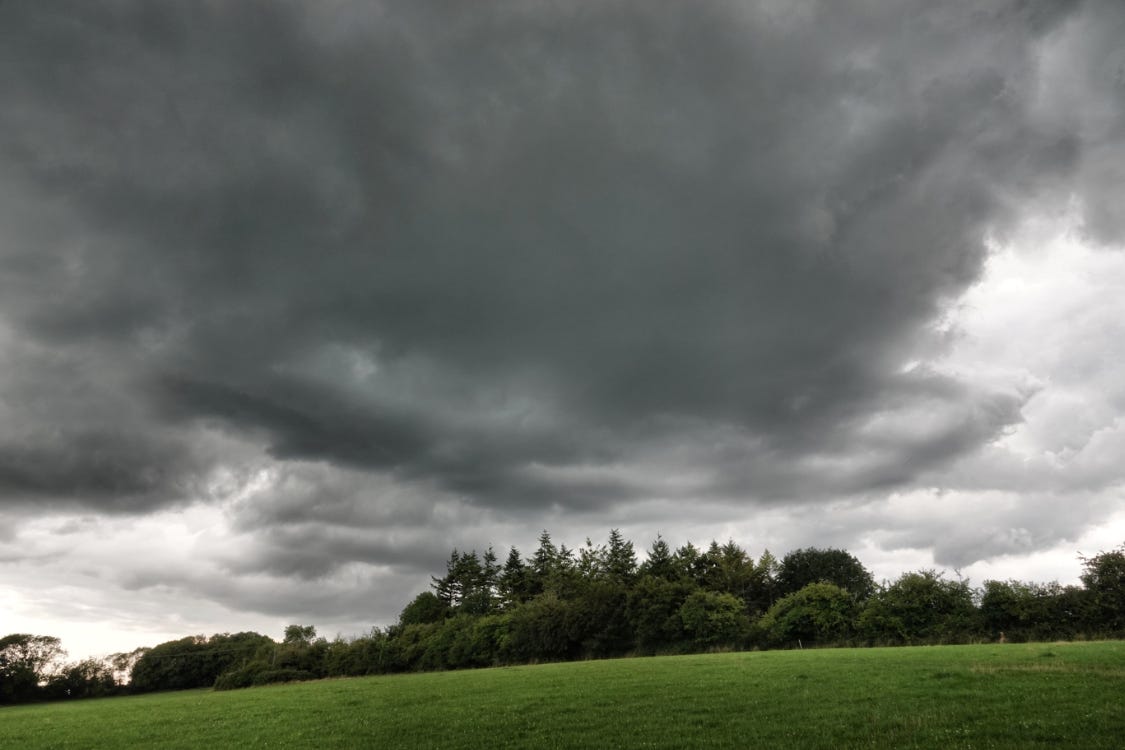
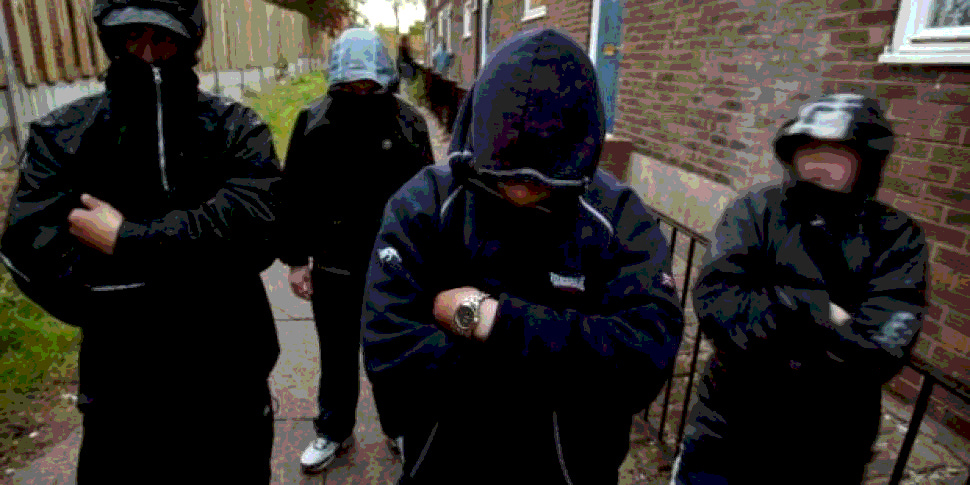
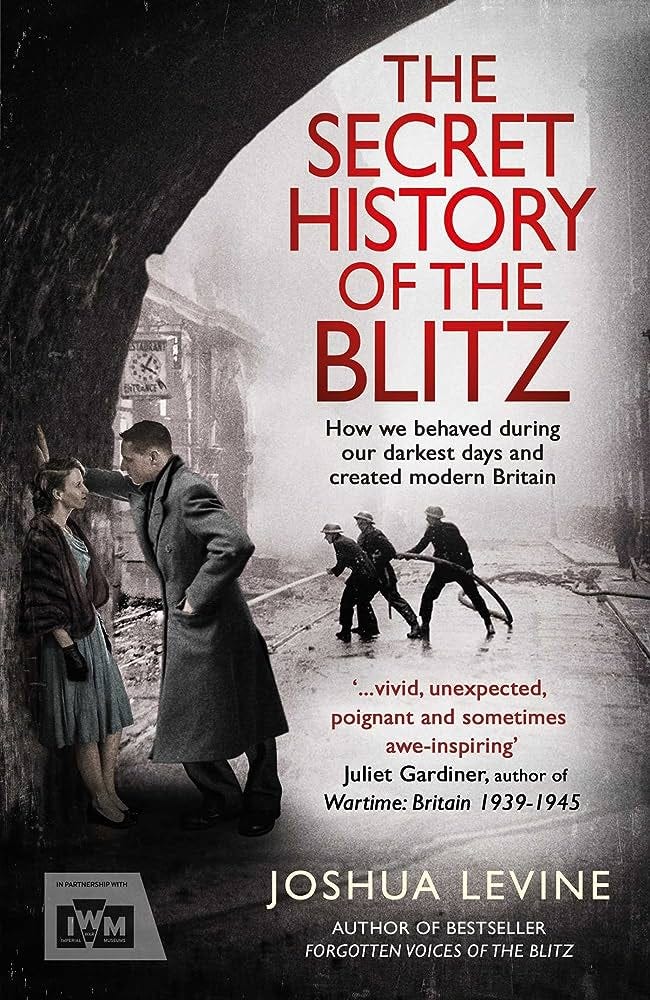
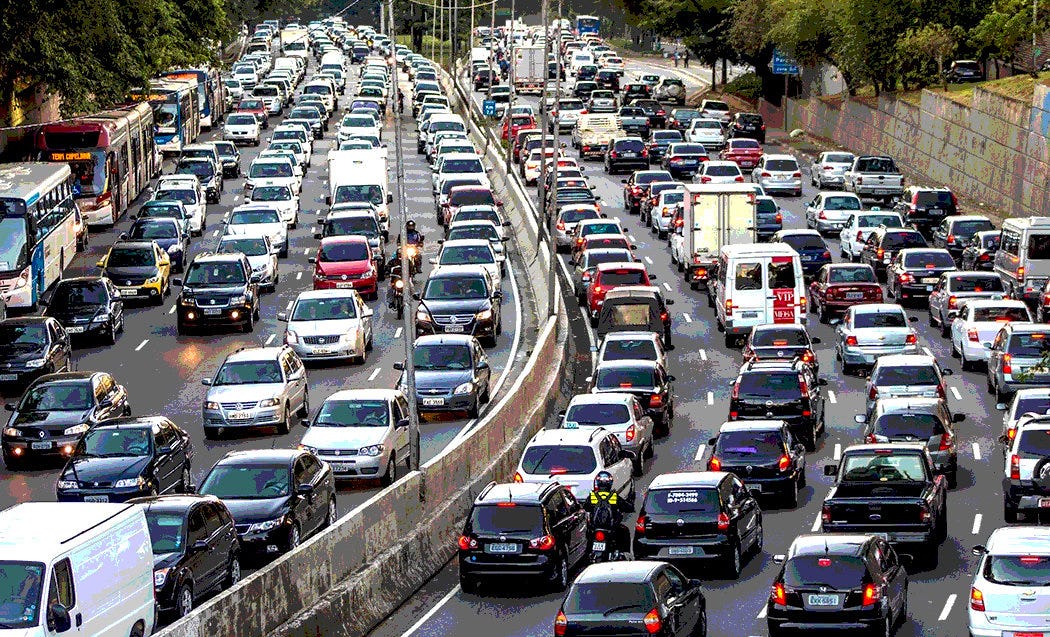
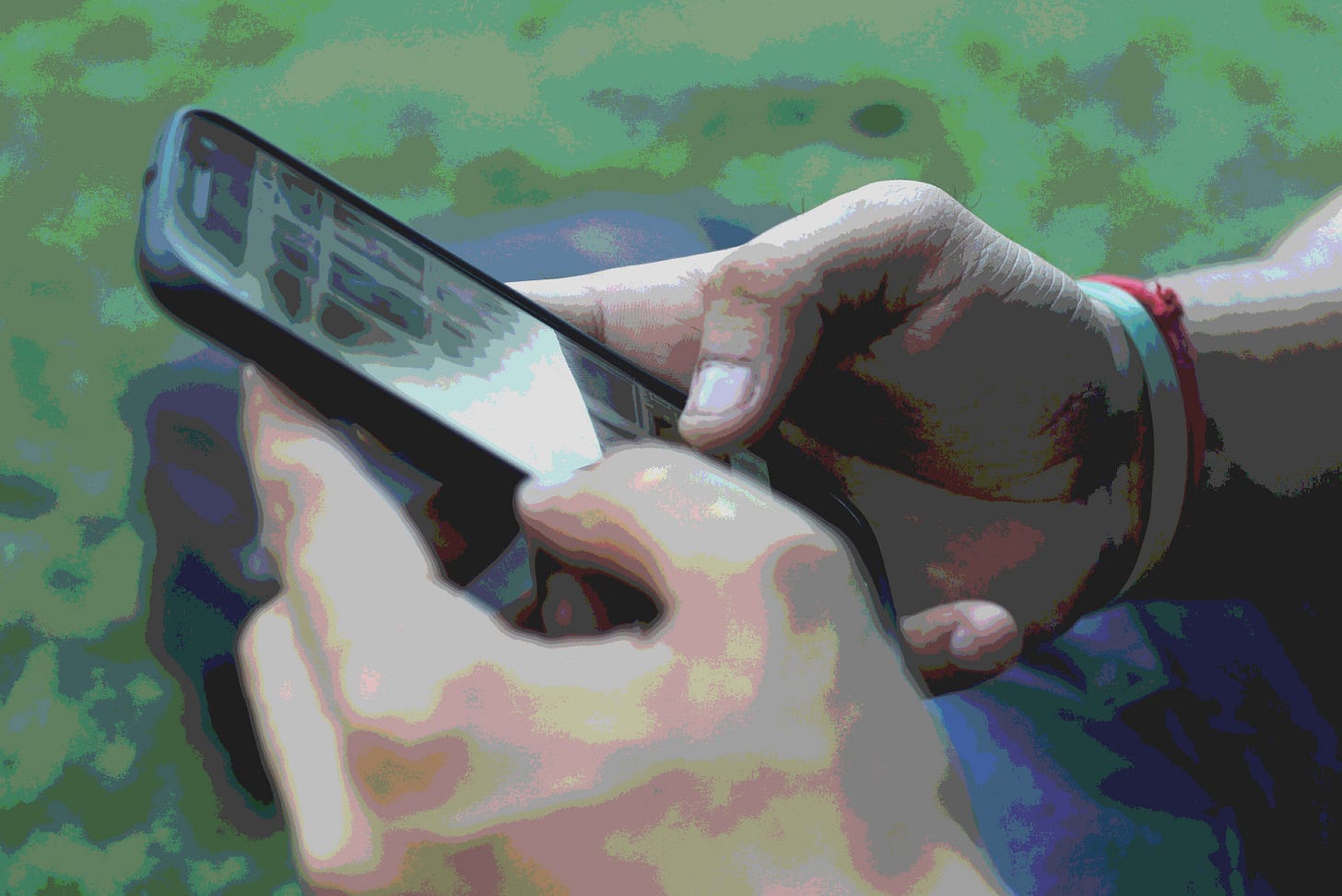
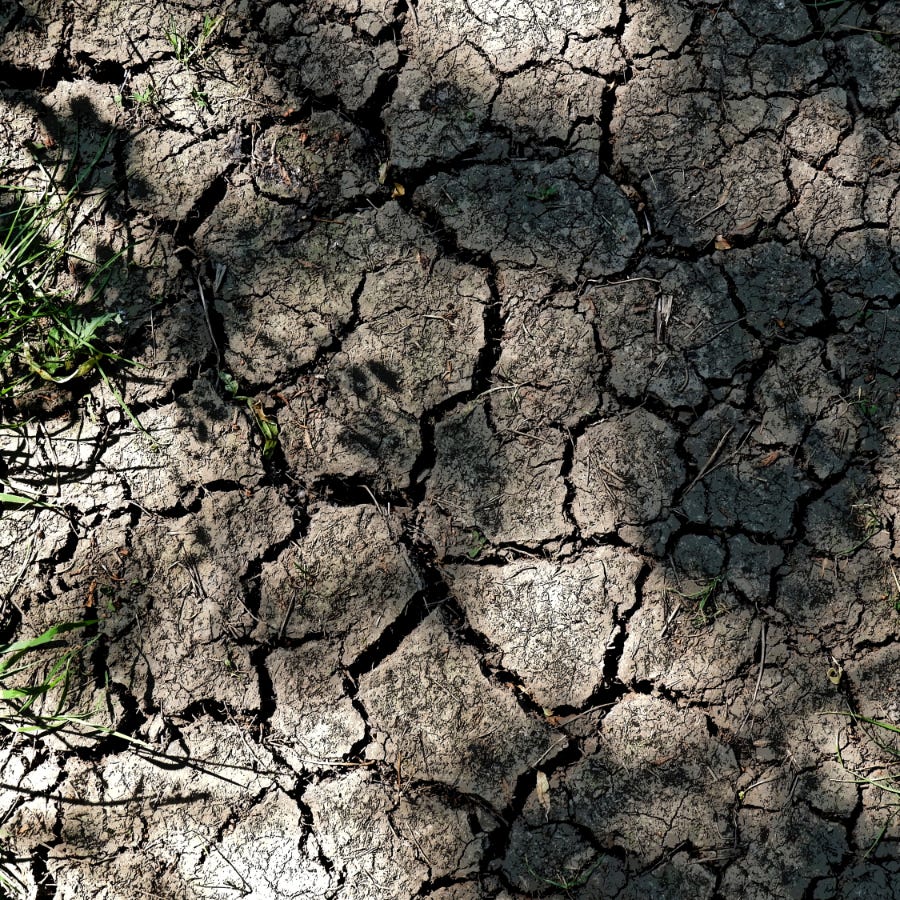
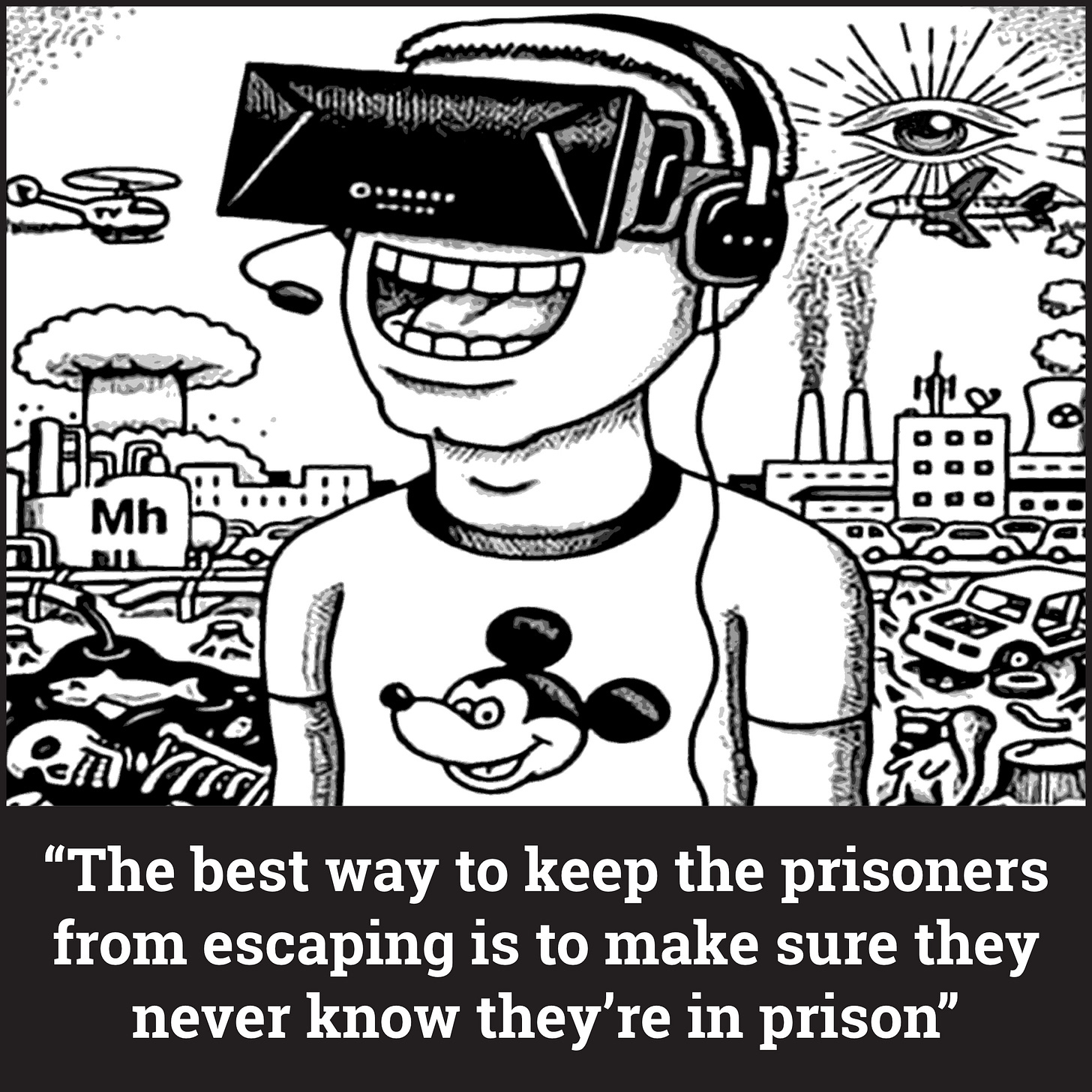
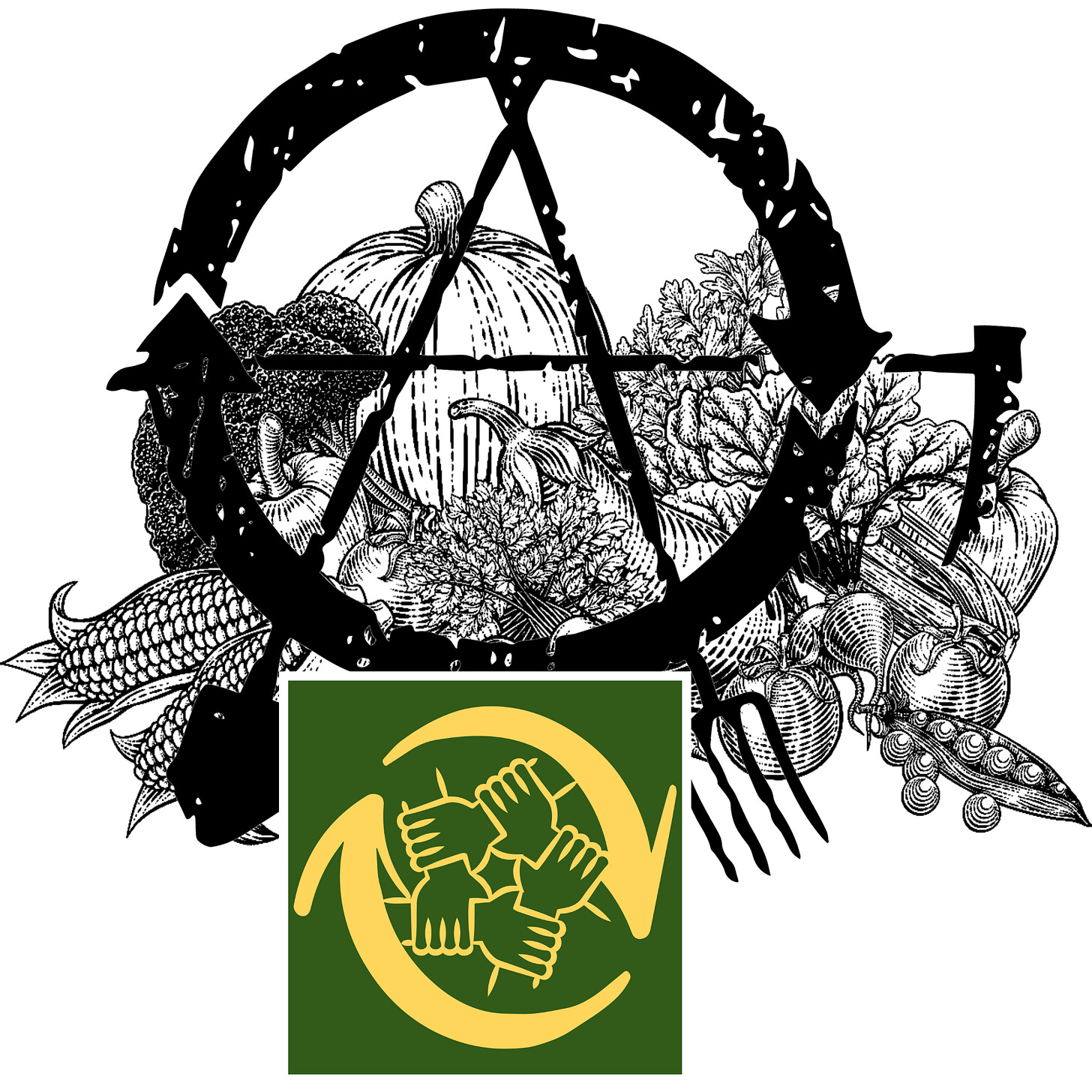
Thank you for sharing this. I’m sitting here reading it with coffee on a quiet Saturday in Mexico! So many people have this sense that “something isn’t right”. I have been wanting to explore it in a post of my own but have been procrastinating. How to write about this intuitive sense I’m having - that many of us are having - without “sounding paranoid”? That’s my fear. But reading your post gives me courage to cover this topic myself, so I will.
In the 60s and 70s, you had civic groups that tried to help those affected by world war II. In some small part, the government was neutral, and you had churches to fall back on.
Post covid, the schools are trying to kill your children by scaring them to death, if not flat-out transitioning them into androgynous beings. You also have the government falling onto the rainbow brigade's side, and your churches are also falling apart.
The institutions that we depended on have all turned against us. Leaving us trapped and feeling alone.
It's no wonder people feel they have nothing to live for.
All sense of community is gone.